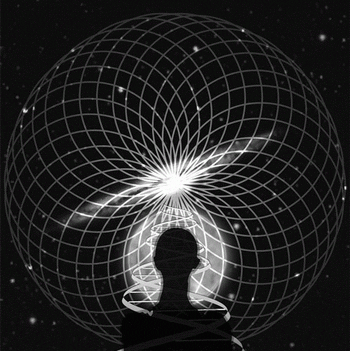When science speaks, who is the speaker?
You could say science speaks for itself, but just as easily say the message is coming from and interpreted by the person speaking.
The distinction is a matter of your interpretation – a subtle but confounding distinction that lies at the heart of concern. A number of well-known, highly-referenced academic journals have recently voiced their concerns about President Trump’s administration and some of gone so far as to nominate Vice President Joe Biden for the upcoming Presidential election outright.
These academic journals base their position on robust science and are factually sound in their assertions. That is not the question. The question is:
Should these journals speak out in the first place?
Science, from its very onset, as been at odds with government and public policy. The modern world’s earliest, most notable experimentalist, Galileo Galilei, inextricably linked his science to public policy, naming the moons of Jupiter he discovered after the prominent Medici banker family and writing his works in bombastic Italian prose as opposed to the traditional Latin reserved for other academic and religious works of the day. The latter would quickly ignite the ire of the Inquisition resulting in a brief stint in prison followed by a lifelong sentence of home confinement.
But Galileo was not the first to propose the theory that the Earth revolved around the Sun, and today we know another scientist by the name of Copernicus was the first to discover this phenomenon decades earlier. But interestingly, the Church knew of Copernicus’s work, was well aware of his theories prior to his publications, and did not ban his books until decades later, after the Church had found itself embroiled in controversy started by later astronomers like Galileo, who put ancient religious canon at odds with modern scientific discoveries.
But the controversy was never truly a conflict of science or data. Rather, it was a conflict of personalities who conflated science with politics using the pretense of science to make political arguments.
Ostensibly then, the Church’s response was to the reaction of the discoveries and works by later astronomers, who galvanized scientific theory into political rhetoric, not the actual discoveries or works themselves. A shift in perspective instigated, many can say, by the scientists themselves, which was met by a counter-reaction from the Church – responding by banning important works of science and using the Inquisition to target scientists as well select ethnic minorities.
A phenomenon which may be repeating itself, this time with more modern characters. Instead of the Church and individual scientists, we have the President of the United States and the most reputed academic journals.
Mark Twain once said that history does not repeat itself, but it does rhyme. And if we take history as a guide, and Trump’s administration’s past actions as an indicator of a future response, we should expect a potentially vigorous response.
Which is quite unfair, as I believe these academic journals hold a unique position in society in publishing some of the most influential clinical studies through a well-earned reputation for high credibility and integrity. But now, by entering the political arena, these journals may have created self-inflicted wounds by damaging their perception in society.
It is never about the facts or the science, it is always about the perception and the reaction. And I fear the perception that science holds a political position and can be either for or against a specific political candidate may provoke a political reaction, leading to an adversarial engagement between prestigious academic journals and the presidential administration – and should the current president be reelected, create an adversarial engagement between science and politics as a whole. With science at the losing end.
Science must maintain a particular duality, which some may see as an unfair double standard, but nevertheless the position it is beholden to – science must allow itself to be attacked, but remain neutral, nearly indifferent to the attacks.
But through this position, science attains a certain integrity, a distinct credibility that will go much further in influencing the minds of the public than any particularly overt political stance could ever hope.
But if we want public policy to reflect science, we have to strongly advocate for science as the public. It is the duty of the public to speak on behalf of science. When we allow science to speak, it no longer becomes about science, but about those who are speaking, degrading scientific discourse into nothing more than an act in a broader political theater – an act in which it is always science that meets with an untimely death.
Galileo eventually lost his freedom and his works remained banned for centuries. There was no possible way he could have argued against the Church and come out victorious. Just like there is little chance for people to argue science and data against those who are predisposed to distrust science to begin with.
These individuals have taken their position, and remain firm in their beliefs – and see any argument against what they believe not as an objective argument of the facts, but as a subjective argument of conflicting perceptions and interpretations. And what they interpret depends as much by who is speaking as by what is being said – the medium is the message.
The world today has no shortage of information, data, or facts. What is missing is the appropriate interpretation, the ability to integrate the facts into a coherent synthesis that makes sense for all. Without it, we are left to interpret the facts however we so choose. And the overabundance of information has seemingly given rise to a commensurately vast abundance of interpretations with no effort at coherently putting it all together.
So we have knowledge, but no understanding. Individuals with a vast amount of information and medical knowledge, but no ability to integrate that knowledge into practice.
It has never been easier to search for health information online. Yet we find no shortage of information that is incorrect, promotional, contradictory, or outright propaganda. And amid a global pandemic, that trend is only going to worsen as people look online to learn on their own about the latest news, developments, and treatments.
But for us to overcome the lasting effects of the virus, both in medical and economic terms, we need to be unified in our approach – or at least have a consensus how we should best proceed as a society.
Which makes the recent stance taken by academic journals all the more concerning. Rather than maintain the integrity and credibility by remaining neutral, many journals have actively engaged the political forum. Which may affect the perceived credibility of data published by these journals among those who may not agree with the journal’s political stance.
If one of the journals publishes a definitive study proving, conclusively, that masks are necessary, then will those who oppose the journal’s political stance listen to the data or question the politics?
If one of the journals publishes the results of a vaccine trial proving that the vaccine is safe and effective against COVID-19, will those who oppose the journal’s political stance listen to the data, and take the vaccine, or question the political motives of the journal?
Science is not wrong, and the foundation of the science is built upon robust science that should guide our decisions as we navigate through this pandemic.
But if we use the platform of science as a tool to engage in politics, we erode the credibility that comes from remaining objective, and pave the way for science to be questioned by those who would have otherwise never questioned the data published through these journals.
The credibility of science has never been as paramount in recent years as it is now. We need to ensure that we protect the integrity and credibility of science by remaining neutral in the political theater – as hard as that may seem to be. But the long-term scientific value will be far greater than any short-term political gain.
And eventually, science always wins. But currently, time is of the essence, and if we are to do everything we can to mitigate the damage of the pandemic, we need to ensure science remains credible enough in the present for people to follow it.
Our lives depend on it.















